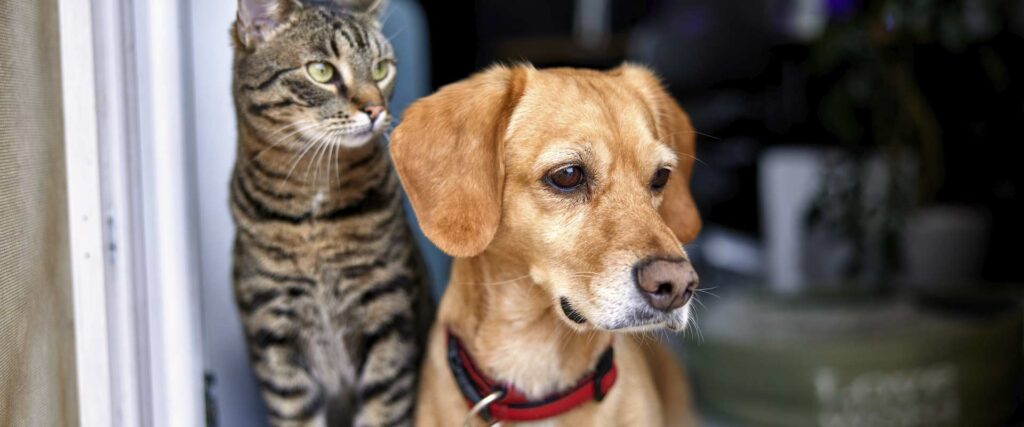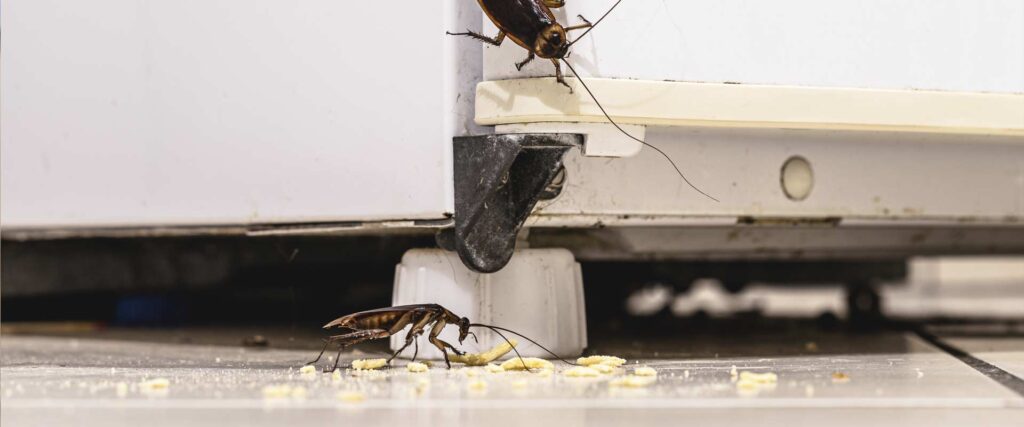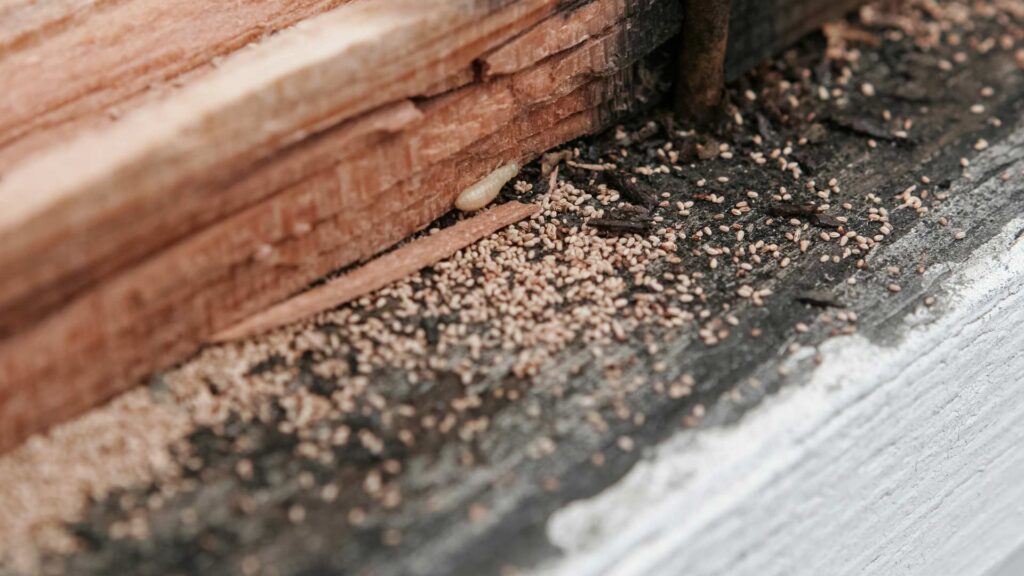When it comes to pest control treatments, the safety of our beloved pets should always be a top priority. As homeowners with furry companions, it’s crucial to understand the potential risks associated with these treatments and take the necessary precautions to keep our pets safe and healthy. In this article, we will delve into the topic of pet safety during pest control treatments, specifically focusing on dogs and cats. We will explore the safety of pest control treatments for our four-legged friends, discuss the types of sprays used by exterminators, address concerns regarding the toxicity of pest control sprays, and provide valuable information on how to mitigate the potential risks.

Understanding the Safety of Pest Control Treatments for Dogs and Cats
Is pest control treatment safe for dogs?
In general, pest control treatments can be safe for dogs if proper measures are taken. However, it’s essential to consider certain factors to ensure their well-being. Dogs have a different physiology than humans and may be more sensitive to certain chemicals. It is advisable to consult with a veterinarian to determine the best course of action and to keep dogs away from treated areas until the chemicals have settled.
Table of Contents
- Understanding the Safety of Pest Control Treatments for Dogs and Cats
- Examining Pest Control Methods and Their Effects
- Recognizing Symptoms of Pet Poisoning and Taking Action
- Ensuring Pet Safety with Pest Control Services
- Long-term Effects of Pest Control Sprays on Pet Health
- Precautions Taken by Exterminators to Protect Pets
- Mitigating Risks and Dispelling Misconceptions
- Common Misconceptions About Pest Control and Pet Safety
- Pet-Safe Guarantees and Secondary Poisoning Concerns
- Conclusion
Is pest control treatment safe for cats?
The safety of pest control treatments for cats is a matter of utmost importance. Cats are known to be more sensitive to various substances, including certain pesticides. Before proceeding with any pest control treatment, consult with a veterinarian who can provide guidance on the specific needs of your feline companion. Temporary relocation of cats during the treatment process may be recommended to prevent exposure to potential hazards.
Examining Pest Control Methods and Their Effects
Types of sprays used by exterminators
Exterminators utilize a range of sprays in their pest control treatments. These sprays may contain ingredients such as pyrethrins, pyrethroids, or organophosphates. The choice of spray depends on the type of pests being targeted. It’s important to note that these chemicals, when used responsibly and according to labeled instructions, can effectively control pests while minimizing risks to pets.
Assessing the toxicity of pest control sprays
Pest control sprays do carry some degree of toxicity, and certain precautions should be taken to ensure pet safety. While the concentrations used in pest control are generally considered safe for humans and pets, direct exposure or excessive consumption can still pose risks. It’s advisable to keep pets away from treated areas until the sprays have dried or settled to minimize the potential for contact or ingestion.
Recognizing Symptoms of Pet Poisoning and Taking Action
Identifying symptoms of pet exposure to poison
If your pet has been exposed to a toxic substance, there are several symptoms to watch out for. These may include drooling, vomiting, diarrhea, excessive thirst, tremors, weakness, difficulty breathing, or seizures. Keep a close eye on your pets after a pest control treatment, and if you notice any of these symptoms, contact your veterinarian immediately.
What to do if you suspect pet poisoning
If you suspect that your pet has been poisoned, it is crucial to act swiftly. Remove your pet from the source of the toxin, if possible, and contact your veterinarian or a pet poison helpline for immediate guidance. Avoid inducing vomiting or administering any home remedies without professional advice, as they may do more harm than good.
Ensuring Pet Safety with Pest Control Services
Prioritizing pet safety when hiring a pest control service
When selecting a pest control service, it’s vital to prioritize pet safety. Look for companies that explicitly mention their commitment to pet-friendly practices. Inquire about the specific products they use, their application methods, and any precautions taken to minimize risks to pets. Additionally, read reviews and seek recommendations from other pet owners to ensure you choose a reputable and pet-conscious service provider.
Breed and species susceptibility to pest control sprays
While all pets can be vulnerable to the effects of pest control sprays, certain breeds or species may have a higher sensitivity. For example, brachycephalic dog breeds (those with short snouts) may be more susceptible to respiratory issues. It’s advisable to consult with your veterinarian regarding any breed-specific concerns to ensure proper precautions are taken.
Long-term Effects of Pest Control Sprays on Pet Health
The long-term effects of pest control sprays on pet health are still being studied. While adverse reactions are generally rare, continuous exposure to certain chemicals could potentially lead to health issues over time. Monitor your pets for any changes in behavior, appetite, or overall well-being, and consult with your veterinarian if you have any concerns.
Precautions Taken by Exterminators to Protect Pets
Professional exterminators understand the importance of safeguarding pets during pest control treatments. They typically take precautions such as advising homeowners to remove pets from treated areas, using pet-safe products whenever possible, and applying treatments strategically to minimize pet exposure. It’s recommended to discuss these measures with the exterminator before the treatment begins.
Temporary Relocation of Pets After Pest Control Treatment
To ensure pet safety, it’s crucial to keep them away from treated areas for a specific period. The duration may vary depending on the type of treatment and the recommendations provided by the exterminator. It’s important to follow their instructions and allow ample time for the chemicals to settle before allowing pets back into the treated areas.
Mitigating Risks and Dispelling Misconceptions
Allergies and Sensitivities to Pest Control Chemicals
Just like humans, pets can develop allergies or sensitivities to certain chemicals over time. While this is not common, it’s essential to monitor your pets for any adverse reactions. If you notice any signs of allergies, such as itching, redness, or respiratory distress, consult with your veterinarian for appropriate measures.
Preparing Your Home and Pets for Pest Control Treatment
Before a pest control treatment, it’s important to prepare your home and pets adequately. Remove food, water bowls, toys, and bedding from areas that will be treated. Seal off any access points that could allow pets to enter treated areas. Consult with the exterminator for specific guidelines on pet preparation to ensure the safety of your furry friends.
Common Misconceptions About Pest Control and Pet Safety
There are several misconceptions surrounding pest control and pet safety. One common myth is that natural or organic products are always safe for pets. While they may have fewer synthetic chemicals, they can still pose risks if not used properly. Another misconception is that all pest control sprays are highly toxic to pets. By understanding the correct application techniques and following professional advice, the risks can be minimized significantly.
Pet-Safe Guarantees and Secondary Poisoning Concerns
Pet-safe guarantees and warranties from pest control companies
Some pest control companies offer pet-safe guarantees or warranties for their services. These guarantees typically focus on minimizing risks to pets during the treatment process. However, it’s important to carefully review the terms and conditions of such guarantees and communicate any concerns or questions with the company representative.
Secondary poisoning risks for pets consuming treated pests
Pets may be at risk of secondary poisoning if they consume pests that have come into contact with pest control sprays. To mitigate this risk, it’s advisable to prevent pets from hunting or consuming pests in treated areas. By keeping a close eye on your pets and discouraging such behavior, you can minimize the chances of secondary poisoning.
Conclusion
As responsible homeowners with pets, it’s crucial to prioritize their safety during pest control treatments. By understanding the potential risks, selecting pet-friendly pest control services, taking necessary precautions, and monitoring your pets for any adverse reactions, you can ensure their well-being. Remember to consult with your veterinarian for personalized advice and guidance. By striking a balance between effective pest control and pet safety, you can create a harmonious environment where both your pets and your home are protected.




